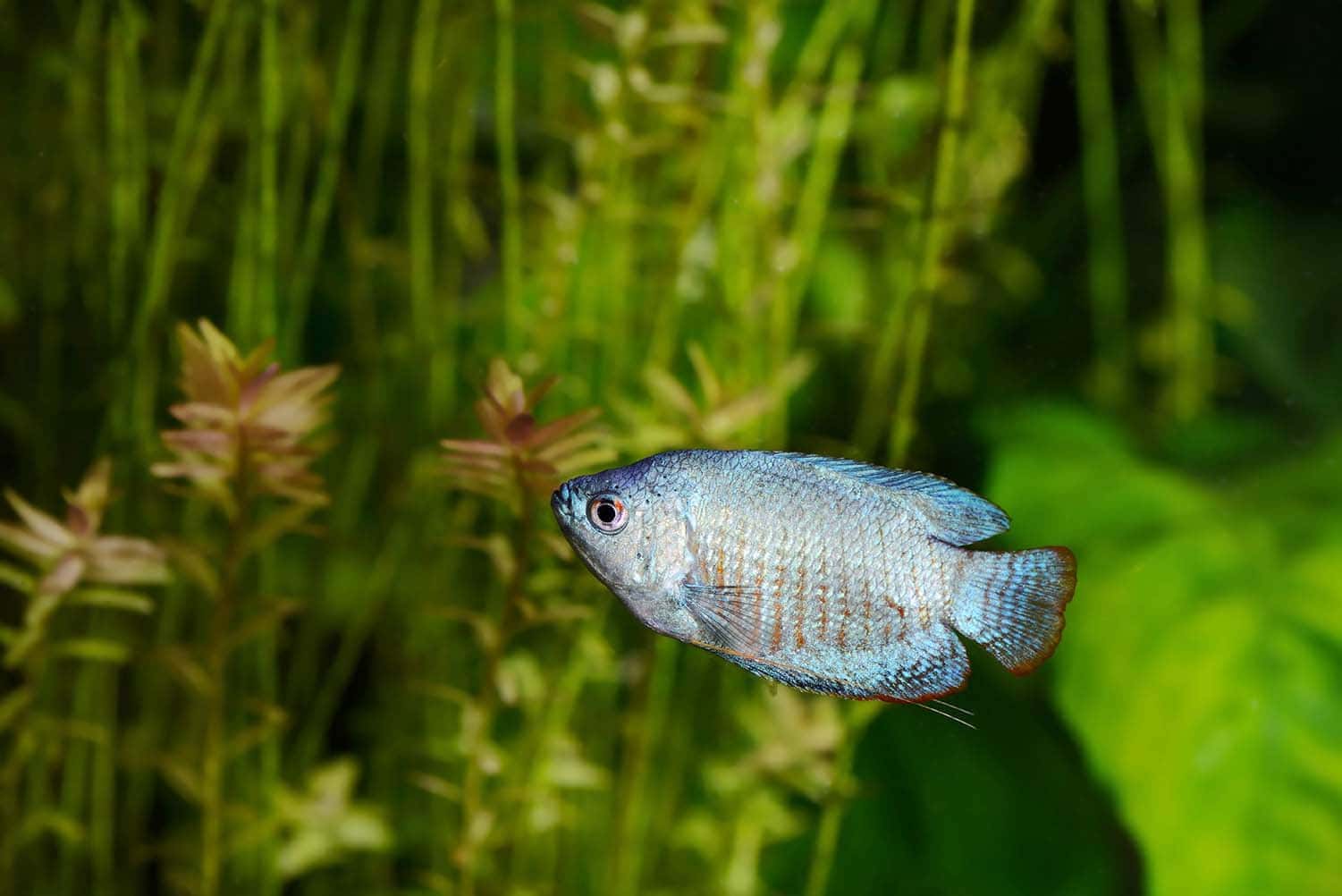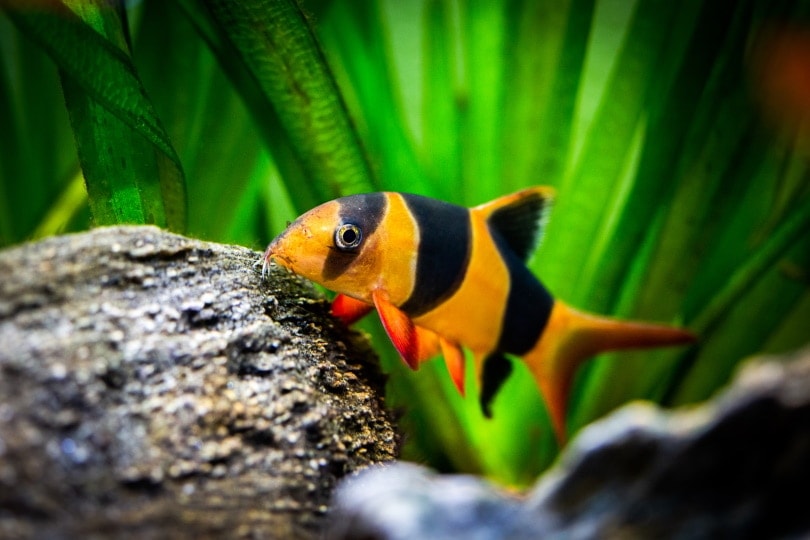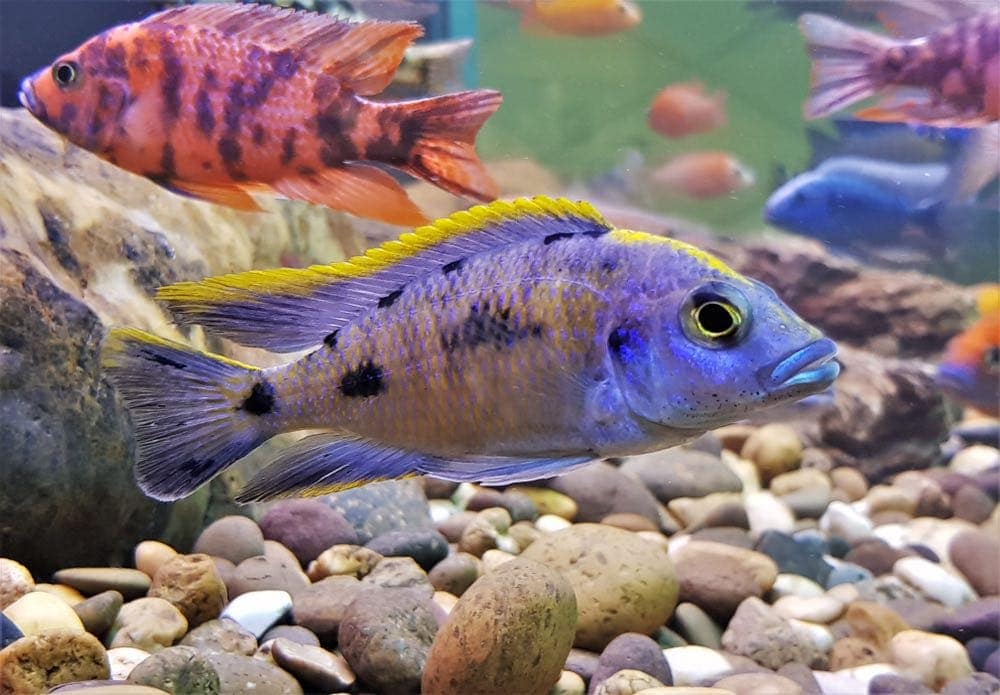Why You Should Wear Aquarium Gloves: 10 Vet Reviewed Reasons

Updated on
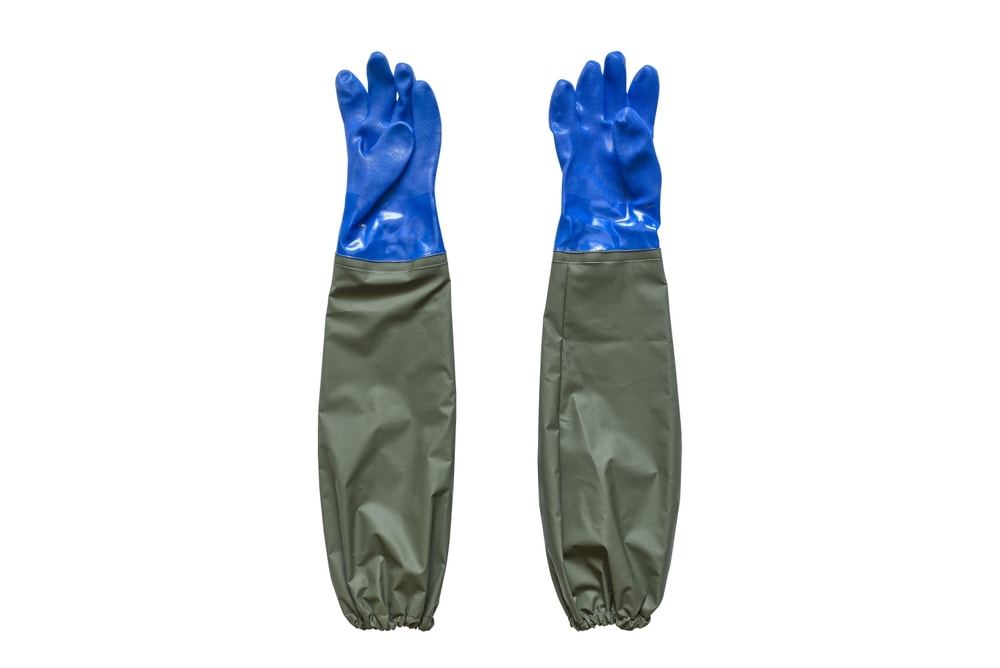
Sometimes, the tiniest efforts can have the most impact. Properly caring for fish takes attention to detail and countless considerations, and one of the simplest yet most consequential is wearing gloves when you work in the aquarium.
Remembering protective wear before dipping your hands in the tank is critical in keeping you and your fish safe. Find out why this easy step is one you should never skip as we discuss nine crucial reasons to wear aquarium gloves.
The 10 Crucial Reasons Why You Should Wear Aquarium Gloves
1. Protect Against Disease
Maintaining a fish tank is a battle against bacteria, viruses, and other pathogens, and the warm, nutritious tank water offers the perfect breeding grounds.
Though rare, humans can contract some diseases through open wounds on their hands as they work in the tank. Some people have mild reactions, while children, seniors, and those with weakened immune systems may face more severe progression, possibly including heart infections and sepsis.
Even if you don’t have open wounds, wearing aquarium gloves provides peace of mind while working.

2. Prevent Poisoning
Please note that this point mostly applies to saltwater setups.
A vibrant array of coral and anemones can spruce up an aquarium often without adding a high maintenance demand, making them popular with beginners and long-time enthusiasts alike. As beautiful as they may be, many of these aquarium features temper their attractiveness with substantial toxicity.
Zoanthid corals are one of the most common coral varieties; they’re an appealing and tolerant anemone containing a potent toxin called Palytoxin. The coral becomes more likely to release the toxin when stressed, which might happen when you work around them in the tank.
- Hives
- Fever
- Nausea
- Muscle cramps
- Shortness of breath
Severe cases require hospitalization and can be fatal. In some circumstances, people have absorbed toxins through their skin without any cuts or cracks. The incidences of infection are rare in healthy adults but have nonetheless occurred, with confirmed incidences in Germany and USA. Although uncommon, the best way to prevent poisoning is to wear thick gloves while handling live features in the aquarium.
3. Protect Your Hands from Damage
While some aquarium components present the threat of poisoning, the risk of scraping, poking, or cutting your hand is more concerning. Dragging your hand across a rock or accidentally hitting some coral is all it takes to cause injuries.
From there, your open wound can become susceptible to infection in the tank water, which you can avoid with a sturdy set of gloves.

4. Avoid Contact with Dangerous Chemicals
Now and again, you may have to dose your tank with medications to fight off common maladies like ich or flukes. While necessary for your fish’s health, these solutions are often anything but gentle on the skin and may pose a problem to those with sensitive skin or eczema.
Accidental exposure can cause adverse reactions if you don’t wash your hands thoroughly. With a stout set of rubber gloves, you can skip the irritation and the time-consuming cleanup entirely.
5. Prevent Aquarium Contamination
Wearing gloves isn’t only for your protection. Maintaining clean and pH-balanced water is essential to your fish’s health and happiness. Unfortunately, you can easily upset the tank conditions by putting your bare hands in the water.
Dirty hands will introduce germs, and skin treatments can add unhealthy components to the water. Materials like hand lotion, soaps, nail polish, and perfumes can leave oily residues behind. Though they don’t typically break down into disease-causing contaminants, oil slicks can limit the oxygen exchange in the water. In excess, these buildups can eventually suffocate your fish.
Even if you don’t have products on your hands, your skin still produces natural oils that can appear in the water. You could rinse your hands thoroughly before reaching into the tank, or you could take the easy route and wear gloves.

6. Keep Your Hands Dry
If the health benefits of aquarium gloves aren’t enough to convince you to buy a pair or two, the practicality might. Aquarium gloves can save time over the long term.
Putting them on and taking them off requires minimal cleanup. Contrast that with bare hands, which you’ll need to rinse before and wash after every tank maintenance session.
7. Avoid Skin Irritation
Pathogens aside, aquariums needing cleaning contain enough irritants to harm your skin, such as salt, nitrates, and ammonia. And you often don’t need damaged, cut, or broken skin to get rashes from the water.
Many people with sensitive skin experience reddening or itching after working in their tanks. Though the irritation is typically short-lived, there’s no reason to suffer even in the slightest if you can just as easily put on protective gloves.

8. Improve Your Grip
Rubber work gloves usually come with textured palms and fingers to improve your grip when working on greasy or wet materials. If you’re tired of fumbling around in the tank with your bare hands, a quality pair of aquarium gloves will make maintenance simpler and safer.
9. Stay Comfortable
No matter how your skin reacts to it, most of us would agree that fish tank water can feel icky against a bare arm. With many aquarium gloves featuring soft cotton linings to enhance the feel and keep you warm, the comfort alone is enough reason to cover up before dipping your hands in the water.
10. Prevent Bites or Stings
Finally, though most pet fish are relatively placid, they may, at times bite your hand. This usually happens out of sheer curiosity. While almost always not an issue, it’s still a good idea to be gloved to protect your hands and your fish from inadvertently ingesting something that was on your skin.
Certain fish have barbs or stingers which are often not an issue for humans, but may cause a mild irritation. Examples of such fish include Corydoras; they possess a stinger near each eye which they can use to defend themselves.
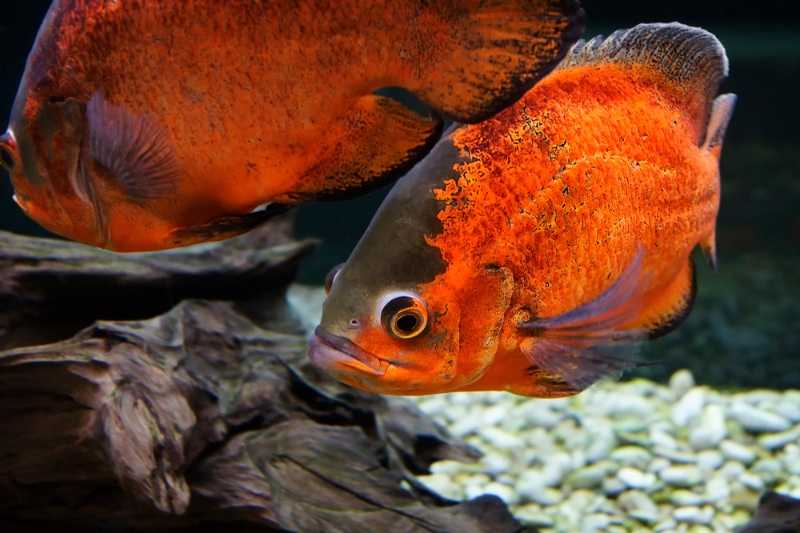
What Gloves Are Best for an Aquarium?
Due to the depth of the water and the hard, jagged aquarium features that could cut into thin material, your average latex gloves aren’t the most practical choice for protecting your hands. Latex is also considered unsafe for many fish and saltwater reefs, as latex itself may leech into your water and adversely affect your pets.
The ideal aquarium gloves have thick rubber to prevent tears and be long enough to cover your entire arm. If the opening dips below the water line, your arm will swim up to the fingertips in aquarium water. Measure your tank depth, and ensure your gloves are at least a few inches longer to avoid getting your arm wet. It is best to test the gloves in a bucket (that you don’t use for your aquarium work) to ensure that they are leakproof. Having a few spare pairs is always a good idea.
Your gloves should be stored in a safe place, following manufacturer guidelines and instructions for storage. Please be mindful to always check your gloves before submerging them in your aquarium; if you suspect that they aren’t clean, you should not submerge them in your aquarium.
Conclusion
Whether for safety, comfort, or utility, wearing aquarium gloves makes sense on every level. Protective gloves can solve countless issues before they occur. They make the experience safer and more enjoyable for you and your fish. Consider these ten reasons to wear aquarium gloves and discover how one small investment can make a world of difference.
Featured Image Credit: AleMasche72, Shutterstock


